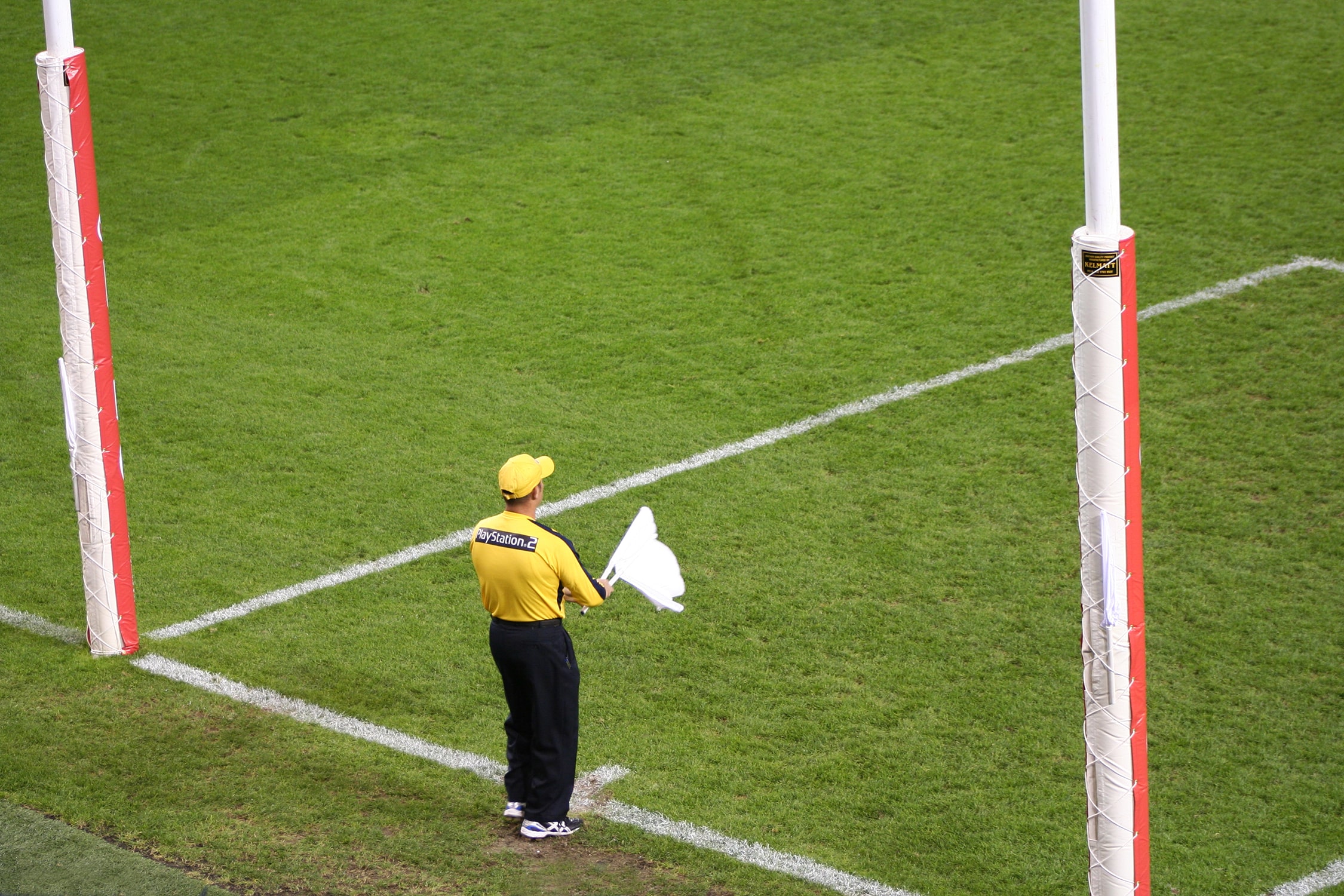Share This Article
This article is not intended for purposes of legal advice. Here is more on fraud offences in NSW. If seeking legal advice, it is strongly recommended to speak to a fraud specialist criminal lawyer.
In Victoria, four people, including an AFL umpire, have been arrested over suspicious betting activity connected to the AFL’s 2022 Brownlow Medal votes.
The AFL’s Brownlow Medal is a medal provided to the ‘best and fairest’ player during the season, with the winner based upon votes cast by the three officiating field umpires after each game.
The umpires pick the three best player performances from the game, recording 3, 2, 1 on the game’s official vote card.
Bets can be placed on what player would be provided with the ‘votes’ each round.
Victoria Police will allege that a person with knowledge of the voting tally of some matches provided that information to others, who then placed bets in accordance with this knowledge.
AFL field umpire Michael Pell was among the men arrested.
Pell umpired and helped cast votes for 16 matches during the 2022 season, which thus gave him access to the relevant information.
The police explained in a media release that they were: “investigating how many matches may have had votes released, and exactly how much money was awarded from the bets.”
At this stage, officers noted that there was no information to suggest that the outcome of the votes were impacted, with the allegations based solely upon the distribution of information.
Investigations into the matter are pending, with the AFL and Sport Integrity Australia cooperating with Victoria Police.
The AFL’s general manager of football operations, Andrew Dillon sought to emphasise that no information has arisen that suggests the outcome was influenced.
“I want to stress that neither Victoria Police, nor the AFL have information to suggest that the outcome of the Brownlow Medal was impacted as the allegations relate solely to the leaking or improper communication of the 3,2,1 voting outcomes of some specific matches during the season.” he noted.
Dillon also explained that: “post-game, the Brownlow votes are sealed and stored in a secure off-site location and not opened until they are delivered on stage on Brownlow night. The sealed vote cards are audited throughout the season by KPMG.”
Two 32-year-old men, and a 27-year-old man from Drouin were arrested, released, and are expected to be charged on summons shortly (which essentially means they will be charged in the future to face criminal charges in relation to the matter).
A fourth man, a 29-year-old from Oak Park, was also arrested and ‘released pending further enquiries’.
Here is more on fraud offences and the law in NSW.
Cheating at Gambling Offences and the Law in New South Wales
In NSW, Part 4ACA of the Crimes Act 1900 (NSW) outlines offences related to cheating at gambling.
As per section 193N, it is an offence to engage in conduct that corrupts a betting outcome of an event.
The prosecution must prove that the conduct was done:
- with intention of obtaining a financial advantage, or causing a financial disadvantage, and
- whilst knowing or being reckless as to whether the conduct corrupts a betting outcome of the event.
Conduct corrupts a betting outcome of an event if the conduct:
- affects or would likely affect the outcome of any type of betting on the event, and
- is contrary to the standards of integrity that a reasonable person would expect of persons in a position to affect the outcome of any type of betting on the event.
Section 193O prescribes that facilitating the above conduct is also an offence.
Facilitating is defined by the Act to involve offers to engage in such conduct, encouraging the conduct, or entering into an agreement to perform the conduct.
Section 193P provides that it is also an offence to conceal this conduct from an appropriate authority, such as police officers or a regulatory authority related to betting.
A maximum penalty of 10 years imprisonment is applicable to all offences, if dealt with in the District Court.
However, the matters will be dealt with summarily unless the prosecutor or accused person elects to have the offence dealt with on ‘indictment’ i.e., in the District Court.
If dealt with summarily, the Local Court is jurisdictionally limited to apply a maximum penalty of 2 years imprisonment and/or an $11,000 fine for a relevant offence. here is more on summary and indictable offences in NSW.
Section 193Q criminalises the use of corrupt conduct information or inside information for betting purposes.
Where corrupt conduct information is utilised to bet on the event, to encourage another to bet on the event, or is communicated to someone who would likely place a bet, a maximum penalty of 10 years imprisonment is applicable.
The prosecution must also prove that the person knew or was reckless to the fact that the information was corrupt conduct information.
Corrupt conduct information is defined under the Act as information about conduct, or proposed conduct, that corrupts a betting outcome of the event.
Where the offence involves ‘inside information’, a maximum penalty of 2 years imprisonment is applicable.
Comparatively, inside information is defined as information that is not generally available.
It must also have the character that, if it were generally available, would be likely to influence persons who commonly bet on the event in deciding whether or not to bet on the event or making any other betting decision.
The Act prescribes that information will be considered generally available if it consists of matter that is readily observable by the public, or it has been made known in a manner that would, or would be likely to, bring it to the attention of the public.
This also includes deductions, conclusions or inferences made or drawn from such information.
These offences were introduced in 2012, following the growth of online betting markets for Australian sports and recommendations by the Law Reform Commission.
Image credit: max blain









